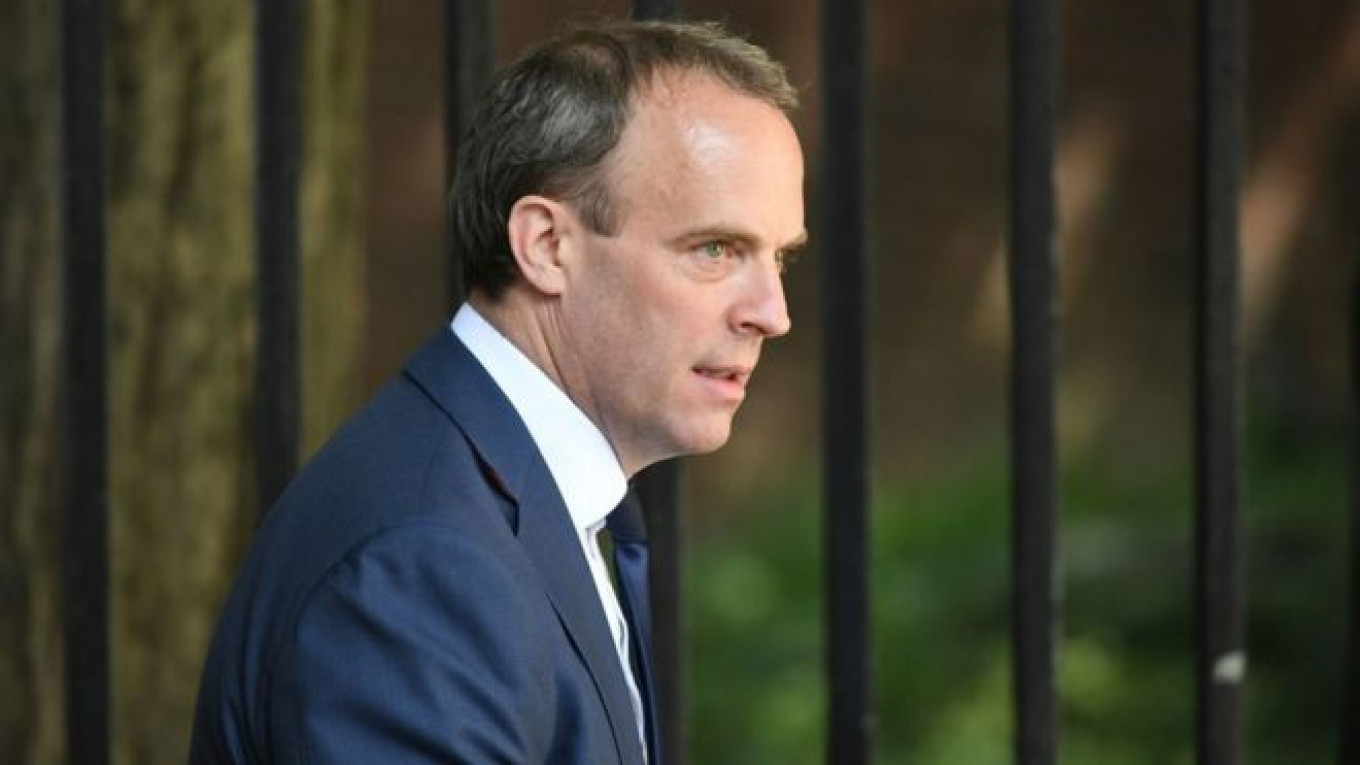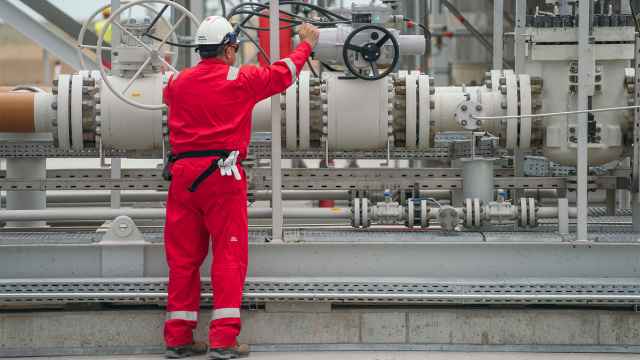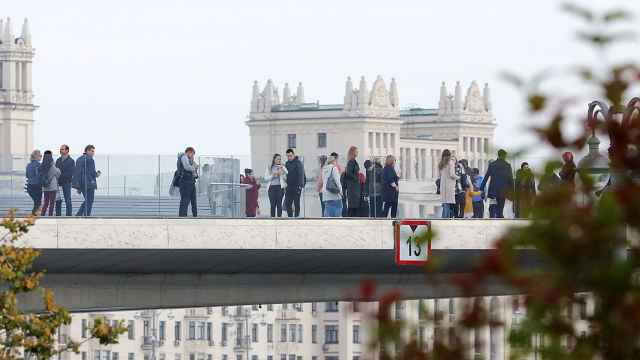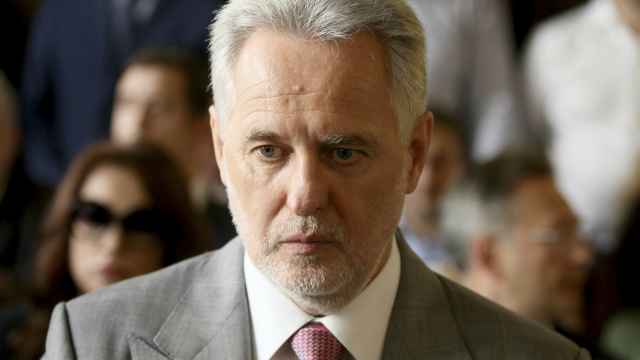Britain on Monday identified 49 "notorious" individuals and organizations, 25 of them Russian and 20 Saudis, to be sanctioned under its first post-Brexit targeting of accused human rights violators, prompting immediate anger from Moscow.
The Russians are listed for their alleged involvement in the death of lawyer Sergei Magnitsky and the Saudis for suspected roles in the death of the journalist Jamal Khashoggi, the Foreign Office said.
One notable name on the list is Saud al-Qahtani, who it is believed oversaw the team that killed Khashoggi in the Saudi consulate in Turkey in 2018.
Individuals from North Korea were also included on the list and all those named will have their UK assets frozen and travel bans imposed.
It is the first time Britain has gone it alone and used sanctions to penalize individuals and organizations accused of human rights abuse. Previously, it has followed European Union and United Nations sanctions regimes.
The new measures were announced by Foreign Secretary Dominic Raab in a statement to the House of Commons.
He said the government would now have the "power to impose sanctions on those involved in the very worst human rights abuses right around the world.
"These sanctions are a forensic tool, they allow us to target perpetrators without punishing the wider people of a country that may be affected."
He added: "Today this Government and this House sends a very clear message on behalf of the British people that those with blood on their hands, the thugs of despots, the henchman of dictators will not be free to waltz into this country to buy up property on the King's Road, to do their Christmas shopping in Knightsbridge or frankly to siphon dirty money through British banks or other financial institutions."
Those targeted would be those not just committing human rights abuses but anyone who profited from them, Raab said.
Lisa Nandy, the main opposition Labour party's foreign affairs spokeswoman, said the sanctions could not come too soon. Britain had been a "haven" to those who use corruption, torture and murder, she said.
Moscow angered
The decision drew a furious reaction from Russia, marking another low-point between the two countries.
"The Russian side reserves the right to take retaliatory measures in connection with Britain's hostile decision," the Russian embassy in London said in a statement without elaborating.
The mission said Moscow was particularly outraged by the sanctioning of top directors of Russia's Investigative Committee and General Prosecutor's Office as well as judges.
Meanwhile, U.S. Secretary of State Mike Pompeo backed the move as an example of British post-Brexit diplomacy.
"This sanctions regime marks the beginning of a new era for UK sanctions policy and cooperation between our two democracies," he said in a statement.
Independent sanctions
The move follows the passage of the 2018 Sanctions Act to set up a post-Brexit sanctions regime.
Britain formally left the EU earlier this year following the 2016 referendum vote backing the move.
Emil Dall, a senior research fellow with the RUSI think tank, called the list "UK's first independent sanctions", in a briefing with journalists.
The new regime of sanctions would hit London's financial sector, the insurance industry and even UK boarding schools, where some of the individuals had sent their children, he said.
Raab paid tribute to Magnitsky, who was arrested after detailing an alleged large-scale tax fraud by Russian officials. He died in jail in 2009.
Khashoggi was a Saudi journalist based in the United States, whose columns were critical of the Saudi regime. He was killed inside the Saudi consulate in Istanbul.
A Message from The Moscow Times:
Dear readers,
We are facing unprecedented challenges. Russia's Prosecutor General's Office has designated The Moscow Times as an "undesirable" organization, criminalizing our work and putting our staff at risk of prosecution. This follows our earlier unjust labeling as a "foreign agent."
These actions are direct attempts to silence independent journalism in Russia. The authorities claim our work "discredits the decisions of the Russian leadership." We see things differently: we strive to provide accurate, unbiased reporting on Russia.
We, the journalists of The Moscow Times, refuse to be silenced. But to continue our work, we need your help.
Your support, no matter how small, makes a world of difference. If you can, please support us monthly starting from just $2. It's quick to set up, and every contribution makes a significant impact.
By supporting The Moscow Times, you're defending open, independent journalism in the face of repression. Thank you for standing with us.
Remind me later.






